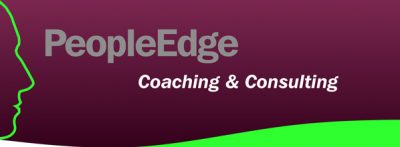
As an executive coach devoted to nurturing leadership excellence, I’m excited to explore the influential role of self-regulation in the pursuit of personal and professional goals. Self-regulation, a fundamental element in the coaching process, acts as a guiding light for individuals navigating their way to success.
Understanding Self-Regulation in Coaching
Self-regulation covers the ability to manage one’s thoughts, behaviours and emotions in a manner that aligns with predetermined objectives. In the coaching sphere, it serves as the linchpin driving progress and enabling individuals to stay on course amidst the challenges of goal attainment.
Setting the Scene for Success
In the coaching journey, the initial stride towards effective self-regulation involves establishing clear and attainable goals. Through collaboration with clients, we define these objectives in a way that resonates with their aspirations, ensuring they serve as motivating milestones.
These set goals act as the spark for self-regulation, guiding actions and decisions. When individuals strongly connect with their goals, they’re more inclined to regulate their behaviours and thoughts in pursuit of these objectives.
The Role of Self-Control
Self-control forms the foundation of self-regulation. It entails the ability to resist immediate impulses that might hinder progress towards a goal. Throughout coaching sessions, I collaborate with clients to build strategies that fortify self-control, helping them stay focused amidst distractions and temptations.
By nurturing self-control, individuals gain the resilience to uphold consistency in their actions, propelling them towards the achievement of their aspirations.
Navigating Emotional Terrain
Emotions play a crucial role in the pursuit of goals. In coaching, we stress the importance of acknowledging and effectively managing emotions to support self-regulation.
Individuals encounter a range of emotions in their journey, from excitement to frustration. Self-regulation empowers individuals to channel these emotions constructively. Through approaches like mindfulness and developing emotional intelligence, clients learn to navigate emotional highs and lows, using them as motivation to strive towards their goals.
Adaptation and Monitoring Progress
Adaptability and flexibility are essential aspects of self-regulation. Clients learn to track their progress, welcome feedback and make necessary adjustments along the way. Coaching provides a platform for clients to monitor their advancements and adapt their strategies as required.
This adaptability ensures individuals remain responsive to changing circumstances, refining their efforts to align with the evolving landscape of their goals.
The Strength of Accountability
Accountability forms the backbone of self-regulation. As a coach, instilling accountability within the coaching relationship is crucial. By holding individuals responsible for their commitments and actions, a sense of duty is cultivated.
Accountability encourages individuals to maintain consistency as they feel a responsibility towards their goals. It fosters a disciplined approach towards goal attainment, essential for successful self-regulation.
In Conclusion
In coaching, self-regulation emerges as the key that unlocks the potential for goal attainment. It’s not just about setting objectives; it’s about the ability to regulate actions, emotions and behaviours in alignment with these goals.
The journey towards self-regulation is empowering. By cultivating self-control, managing emotions, adapting to changing circumstances and fostering accountability, individuals set themselves on a path towards tangible progress and goal achievement.
So, whether you’re a leader striving for professional milestones or an individual with personal ambitions, mastering self-regulation through coaching can be a game-changer. It’s the driving force propelling you towards the success you aspire to achieve. May your journey of self-regulation and achievement of your goals be a fulfilling and transformative experience!
Jo Attard Watters is the Managing Principal and Founder of PeopleEdge Coaching & Consulting. Jo is a professional, Master’s degree qualified Executive and Career Management Coach, Consultant, Business Adviser and Academic who works with individuals and organisations to help them “be the best they can be”. With significant experience within both Corporate and Not for Profit sectors, Jo is passionate about seeing her clients succeed in their areas of interest.
